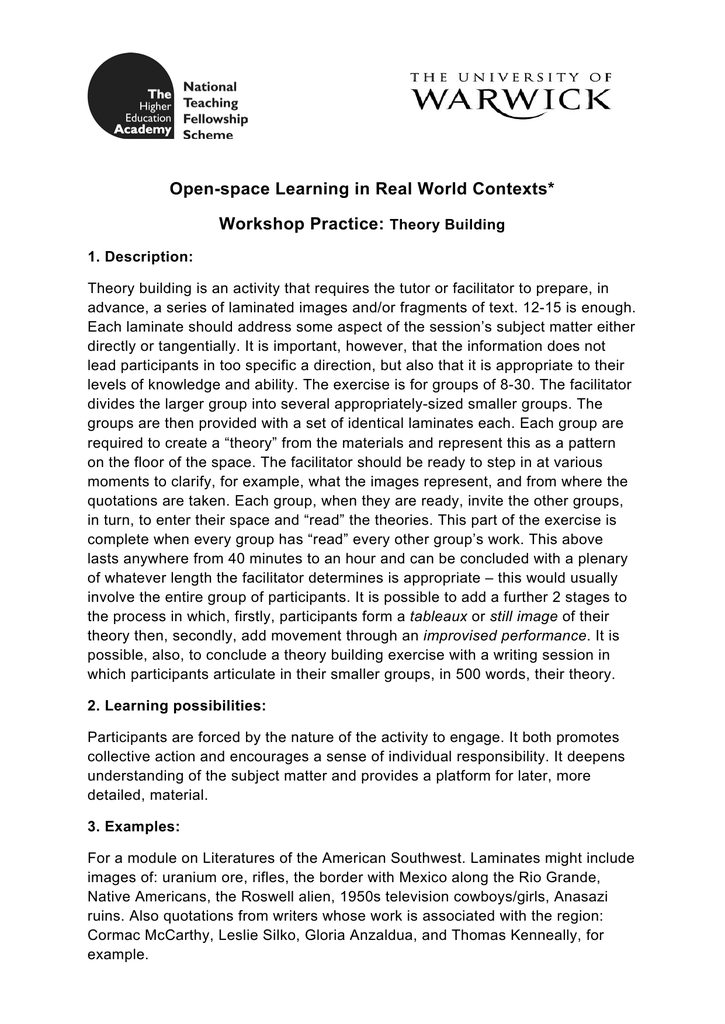I’ll spare you the boring details; but, long story short, I accidentally deleted a file from my computer that had everything I’ve ever created in ten years of teaching. Yes, I thought it was backed up in the cloud; but, it wasn’t. And, no, it was not backed up anywhere else (at least most of it wasn’t). I feel incredibly dumb, and even more frustrated/mad/sad/etc. Please let me be your cautionary tale. Go back up your files RIGHT NOW. I’ll wait…
- 6th Grade Activities
- 6th Grade Practice
- Socratic Seminarmrs. Parker's 6th Grade L.a. Classes
- 6th Graders
So that stinks a lot. BUT, the one positive thing, I guess, is that I’ve been forced to re-evaluate my “normal” way of doing things since I’m basically starting from scratch again (minus things I’d shared with colleagues and/or posted here over the years)… This actually worked in my favor a few weeks ago when I realized it was time for a Socratic Seminar on A Separate Peace with my tenth graders, but I didn’t have the big list of questions I usually hand out and have them prepare responses to ahead of time. I started Googling, as one does, but just wasn’t satisfied with what I was finding. So, instead, I stepped back and really thought about WHY I do class discussions, and HOW I could make them better. The end result was even more successful than I’d hoped (#ifIdosaysomyself), so I’m excited to share it with you today. Bonus: It’s EASY to implement and can be adapted to any book or topic you’re teaching, and I’ve included an editable file for you to start using today!
Src/public/js/zxcvbn.js This package implements a content management system with security features by default. It provides a blog engine and a framework for Web application development. Welcome to The Tale of Despereaux! Here is a review by BookRags Website! The Tale of Despereaux is a Newberry Medal book by famed children's author Kate DiCamillo. Despereaux is the story of an unusual hero.
A couple of things before I jump in:
What in the world is a Socratic Seminar?
A Socratic Seminar is really just a fancy way of saying class discussion. It’s named after Socrates who believed the best way to get people to learn and understand is to ask them questions so that they come to their conclusions / create their own meaning.

How WAS I doing Socratic Seminars in my classes?
For the last several years, I have conducted Socratic Seminars with all of my classes (Pre-AP English 9, Pre-AP English 10, and AP English 11) after every book we read in class. In general, this is how I usually do it: I provide a list of questions to students ahead of time and ask them to write out/prepare their answers. Then everyone shows up for the discussion, we move all our chairs in to a big circle, I read each question aloud, students take turns (or – let’s be honest – fight to be heard) sharing their thoughts, and I listen with a pen in hand so I can score each student on a rubric that gives up to 5 points per contribution based on the depth of their insight, their reference to the text, etc. At the end of the discussion, students turn in their written responses for approximately 25 points and the other 25 points come from their participation/contribution in class. It was easy enough, we typically had good conversation, and the students enjoyed it.
Of course, I did run into a few problems… Mainly, I was overwhelmed having to keep track of everyone’s contributions and the discussion sometimes felt inorganic because students were too worried about their score (ie. squeezing in a quote just to “get the points”). My other big problem was that some of the quieter students in my class – who often had really wonderful things to say – were overshadowed by their more talkative peers, and didn’t get to share as much / earn as many points. I’d tried a Fishbowl model (which just has a smaller group discuss each question in a center circle) with some success, but it still wasn’t perfect.
Now, let’s get to my new (and improved) method:
We finished reading A Separate Peace in my Pre-AP English 10 class on a Wednesday with about 20 minutes left in the block – which was the perfect amount of time to introduce their homework assignment and get started on it together. (For the record, my classes are 90 minutes long.)
I gave students a handout explaining that they would be writing their own Socratic Seminar questions for our discussion the next class. Here’s what it looked like —
The handout explains everything pretty thoroughly, but here’s the gist. This time, instead of giving students a bunch of questions to answer, I asked them to write their own questions and answer them thoroughly. I gave them some ideas of types of questions to get them thinking (sentence types and examples came from here), but the only real requirements were that the questions were at least 25 words (I think that made a big difference), the answers were at least 50 words (again, not that hard to do, but required some thought and effort), and that they included a direct quote from the novel in either the question or the answer (spoiler alert: most students found that a quote worked in the question better than in the answer, and I tend to agree).
Students brought their typed questions and answers to class the next block and presented them to a small group where everyone had to contribute something to the discussion before they shared their answer. As their group members discussed their question, each student took some general notes on the back of their printout.
Finally, each small group chose their top one or two questions to present to the class for a more informal (non-graded) whole class discussion at the end of the block.
Why did this work?
The main reason I liked this so much was that EVERY student was actively engaged in our discussion with EVERY question. Since everyone had to contribute at least something to each question asked at their table, no one could zone out or “hide” in the crowd. Moreover, students that are typically shy and nervous in our whole class discussions, reported that they felt more comfortable sharing their opinions in these smaller groups.
The above reason was pretty obvious – I could have made that change to my old method of doing Socratic Seminars long ago if I’d just thought about. What I was surprised to see though, was that the act of composing solid, thought-provoking questions – was actually an equally good (if not better) method of seeing how much students really learned than having them answer questions. The questions they came up with SO good. Dare I say they were even better than the ones I might have provided them had I written them all myself… They touched on so many deeper-level thinking questions (Bloom would have been so proud) and covered all the concepts (and then some) that I wanted them to learn. They connected their reading to current events, other novels, etc. And, because they’d written the questions themselves, they were particularly invested in the discussion. I just loved how this part worked out.
Finally, the kids liked it too. They appreciated only having to ask and answer TWO questions instead of the normal ten, and they appreciated the freedom they had to pull out the things they found the most important and meaningful from the novel for the discussion. Several students told me they didn’t even like the book until we did this activity, and about 90% of them said they preferred this method over the old one.
BONUS: The grading was more straight-forward to me, and I could actually move around the room and listen/participate in the discussions instead of having to frantically “keep score” during it.
Ready to try it? Get the editable assignment sheet HERE
And a few necessary disclaimers…
I really don’t know if this would work with every single group. My students are pretty motivated and, by this point in the year, we’ve read and discussed enough literature with each other that they know what to look for for the most part. Younger, less mature, and/or weaker students might benefit from a big more structure, but you know your classes!
Now tell me… How do you do class discussions? How could I make this activity even better? What have I not thought of yet?
E

August 5, 2014
Dear Sixth Grade Families,
Iwould like to Welcome you and your child to the 2015-2016 school year here at Calibre Academy. My name is Brad Parker and it is my honor to be your child’s Sixth Grade Math and Science Teacher. I am a Fifth year teacher and have worked in many fields along the way. This has allowed the benefit of knowing what skills business leaders are looking for.
I have been married to the same wonderful wife for almost twenty five years I have two beautiful daughters, an awesome son-in-law and two handsome grandsons. I am looking forward to working with you and your child in reaching his or her full potential as I have with myself and my family. We will have many wonderful experiences and opportunities to learn and grow this year.
I believe that communication is the key to a great parent-teacher relationship. I encourage you to contact me if you have any questions or concerns at any time. You can send me a note in your students agenda, email me at Bradford.Parker@learningmatters.org or call me at (623.556.2179). I will also do my part by sending out a newsletter via my web page to update you on what we have been doing in class as well as things that are up coming. For individual concerns, I will contact you by phone, send a note home, or email you (if an email address is provided).
6th Grade Activities
***Every day your child will take home his/her Agenda.Please check this each day. It will contain important announcements, homeworkassignments, or completed work. It is very important that your childbrings this back to school each day signed by you. This will help to create a routine andcontinue the communication between home and school. Also, use this as a way tocommunicate with me. For instance, if your child is doing something differentfrom their normal schedule (going home with a friend, being picked up byanother family member, etc) please send me a note to let me know the change ofplans. I will check the Agenda each morning.
6th Grade Practice
***Homework in Math and Science will be for extra practice, to review for a test/quizor if the work was not completed in class. Occasionally We will have Labs orprojects that will require some time at home.
***Attendance is important in sixth grade.What we do in class involves active participation, it is very important thatyour child attends each day. However, I do realize that sickness, familyemergencies, and doctor’s appointments do occur. Whenever possible, yourchild’s schoolwork will be saved for him/her to complete upon their return toschool.
The link below will take you to a survey that will help me to gather student information such as parent contact info and some likes and dislikes.
Socratic Seminarmrs. Parker's 6th Grade L.a. Classes
Sincerely,
Brad Parker
6th Graders
